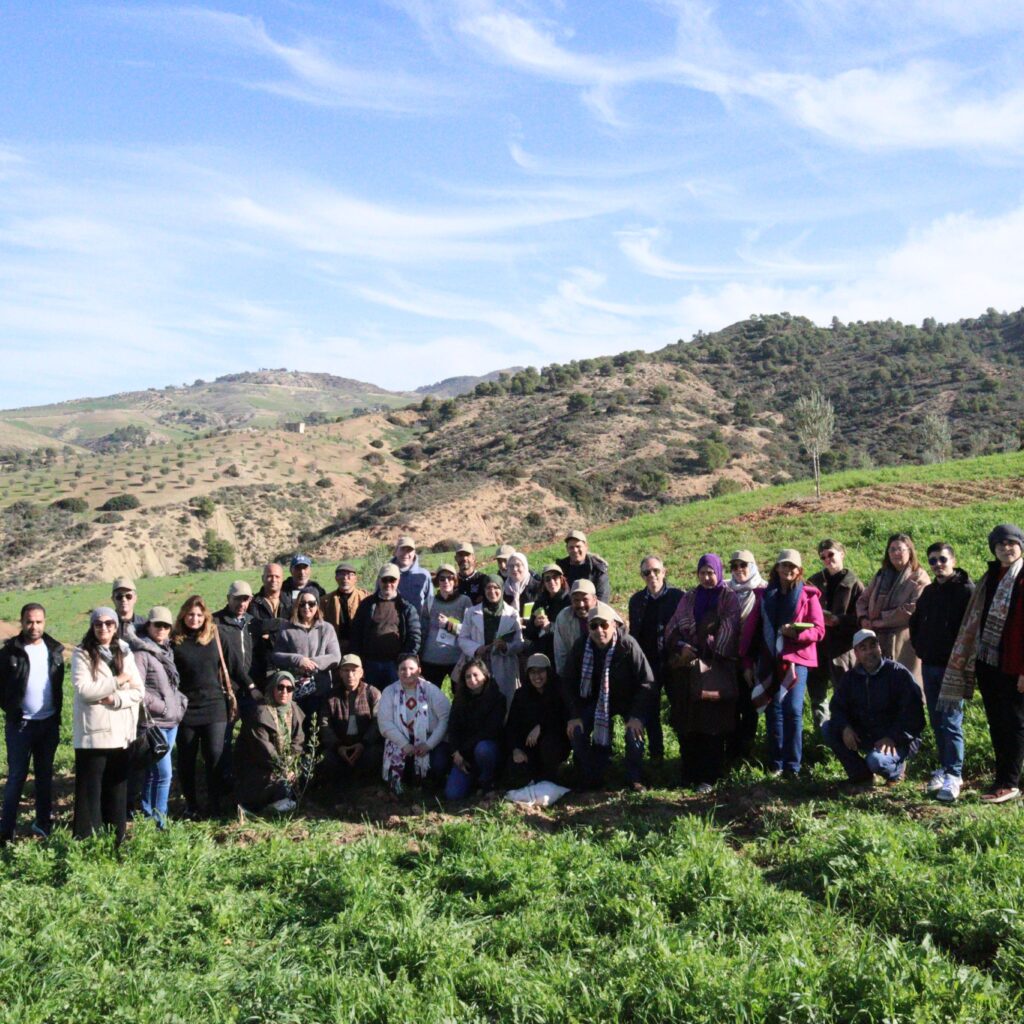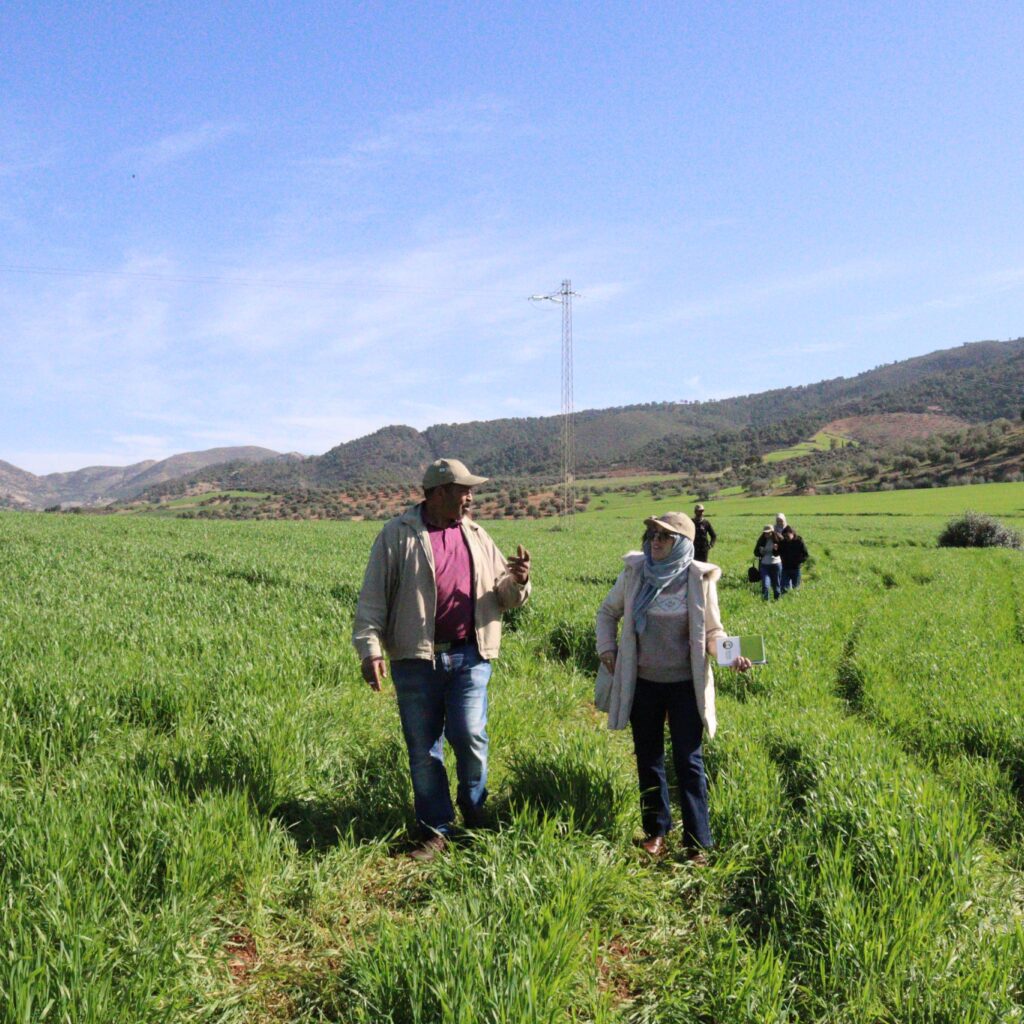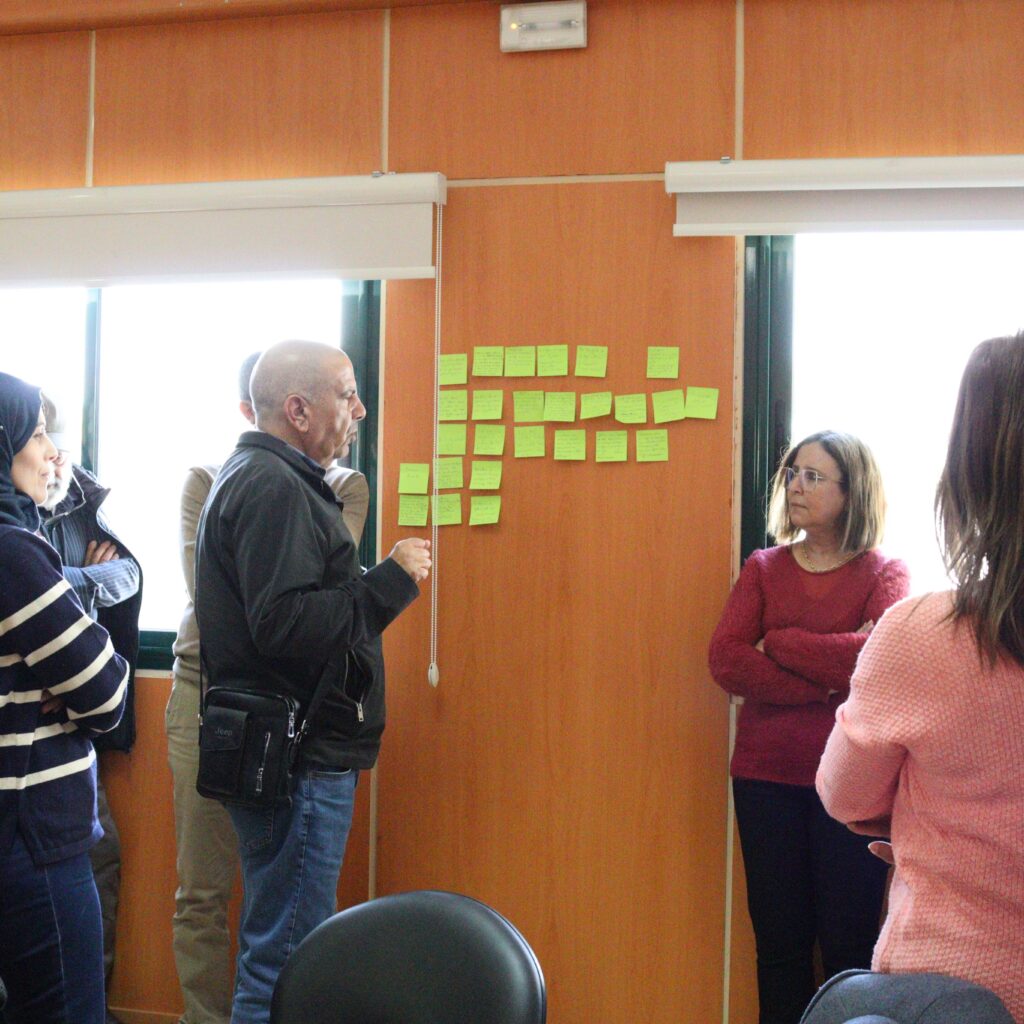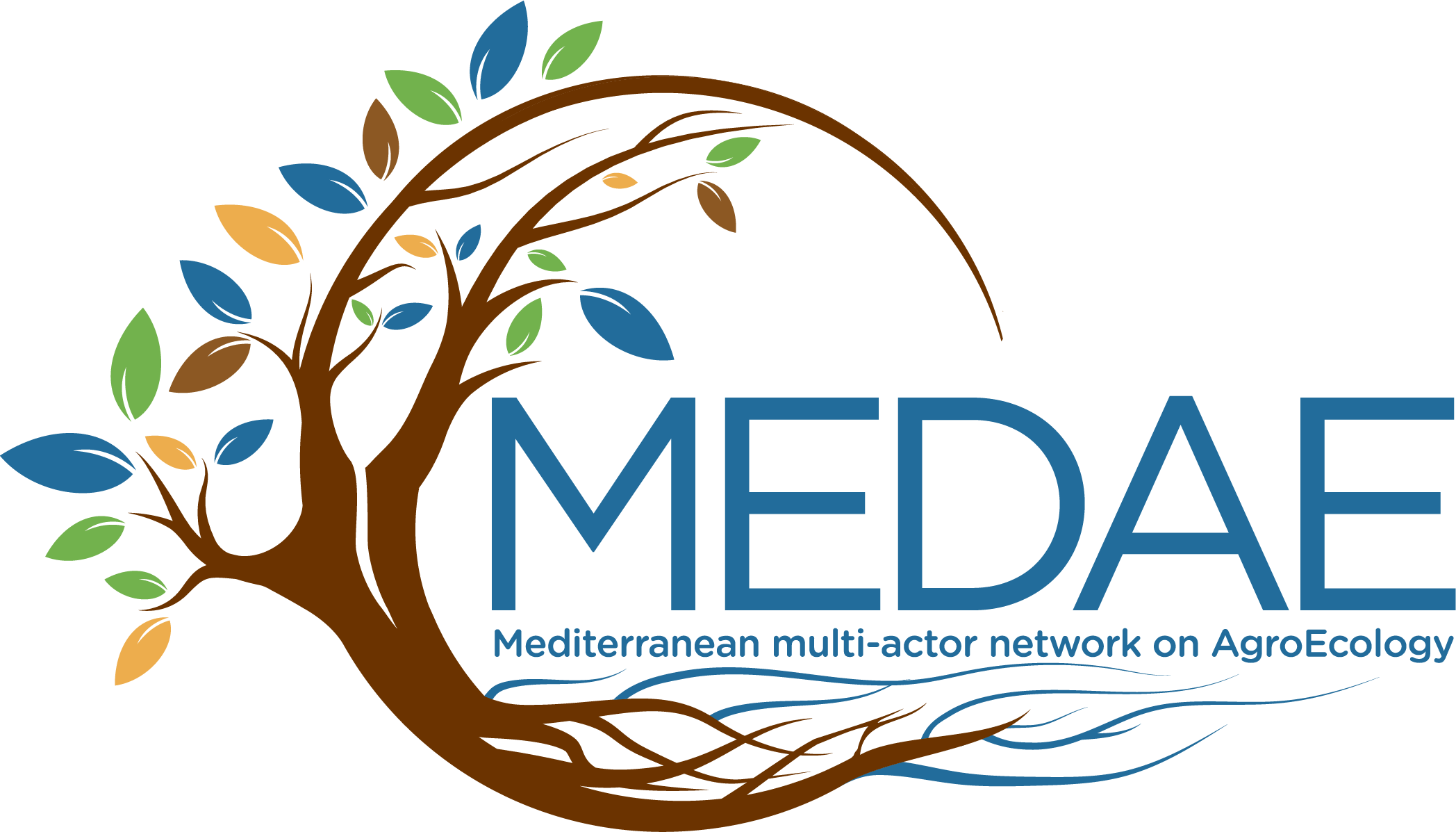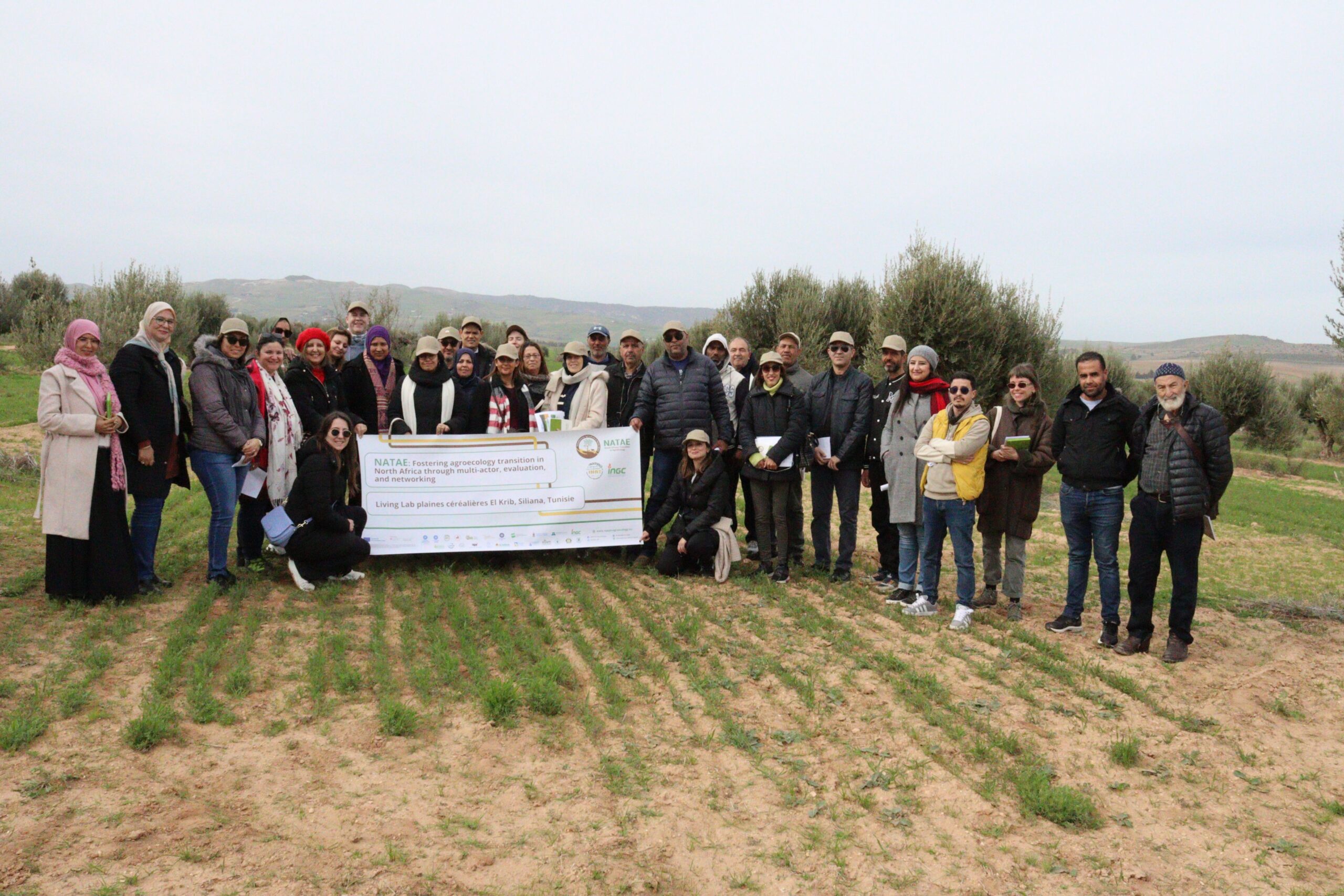From January 25th to 28th, 20 farmers, researchers, and development actors from Tunisia, Morocco, Algeria, France, and the Netherlands met in Tunisia for the first cross-visit organized as part of the NATAE project. The participants included laboratory representatives from Laghouat, Tizi Ouzou and Setif (Algeria), and Boulmane (Morocco), as well as researchers from WUR and IAMM.
With the support of INAT (National Agronomic Institute in Tunisia), participants were able to travel to the governorate of Siliana, El Krib delegation, in the north-west of the country, to meet stakeholders involved in the agroecological transition of their territory and discuss with them three major issues in this cereal-producing area: (i) soil fertility, (ii) integration of legumes into cereal systems, (iii) access to information and agricultural extension.
The program included farm visits, a tour of the INGC (National Institute of Field Crops) experimentation station, and restitution workshops. These days were rich in experience and knowledge sharing and highlighted relevant agroecological practices to improve food security and sovereignty in North African countries in the context of climate change.
- (i) Discussions on soil fertility highlighted a real awareness on the part of all stakeholders on the importance of soils for crop yields and system sustainability and, therefore, on the need to preserve them from degradation and erosion. To achieve this, the Siliana – El Krib living laboratory has implemented several practices, such as no-till sowing in combination with crop rotation.
- (ii) The issue of integrating legumes into cereal systems has enabled farmers from neighbouring countries to discover fodder associations and their benefits at different levels (yield, price, nutritional value, etc.). Legume/cereal rotation has also been recognized for its ability to improve soil fertility and crop yields while reducing the need for nitrogen fertilizers.
- (iii) Agricultural extension was recognized by all as one of the main conditions for disseminating agroecological practices and encouraging their adoption by farmers. Agricultural extension can be based on various methods, such as the creation of pilot farms (like living laboratories) or peer-to-peer information sharing, as with the “Farmer Leaders” program developed by INGC over the past 5 years.
This visit was the first of the 4 cross-visits scheduled for 2025, which aim to encourage exchanges between living laboratories and replication laboratories set up in the project’s intervention countries so that farmers, researchers and development actors can draw inspiration from the agroecological actions and practices developed there, and share their own experience. These visits are also an opportunity to create new synergies between stakeholders involved in the agroecological transition in North Africa. The next step in Algeria from February 20th to 23rd is to meet the actors of the Laghouat living laboratory, located in an oasis farming system.
